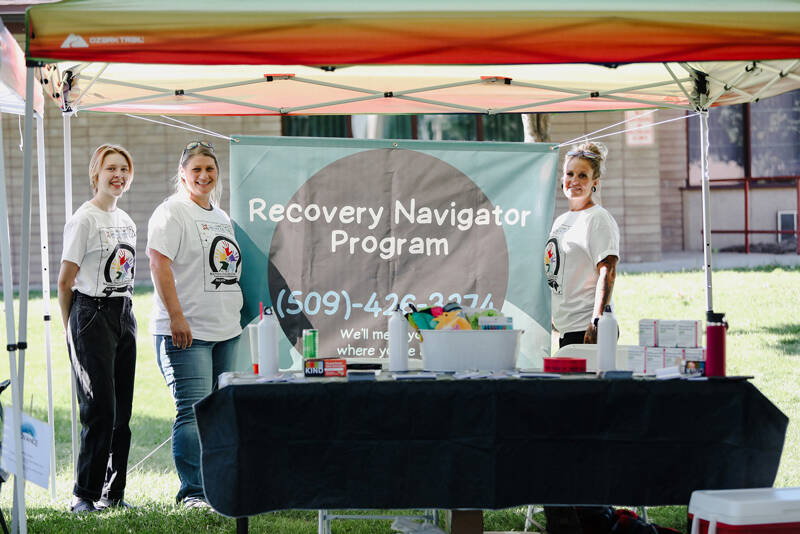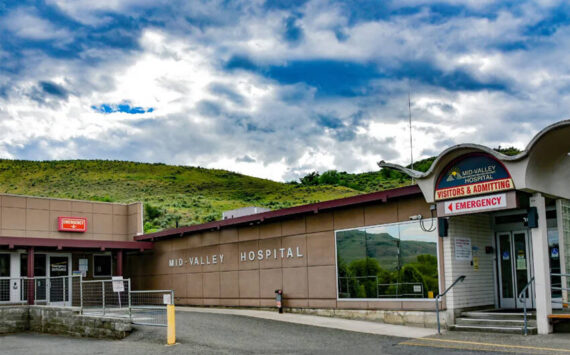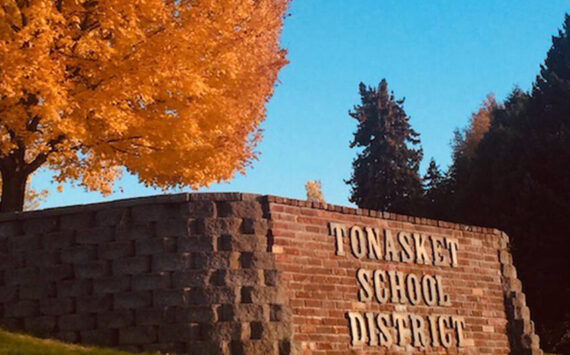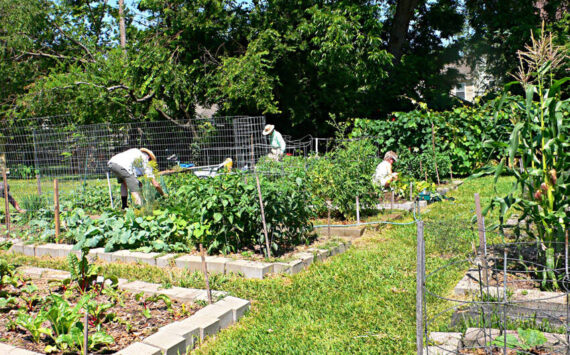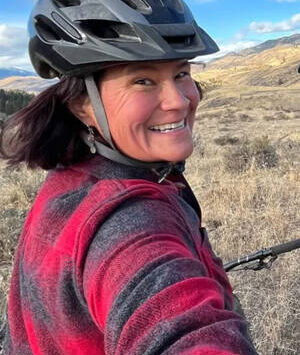OKANOGAN COUNTY — The Okanogan County Recovery Navigator Program offers outreach, treatment and recovery support services, by people with lived experience, for those who are struggling with life challenges related to substance use or mental health.
The Recovery Navigator Program was established in response to Engrossed Bill 5476, the state v. Blake’s decision, by addressing justice system responses and expansion of behavioral health services.
Recovery Navigator Program serves as a beacon of hope for the community and houses the only vending machine to dispense Narcan in Okanogan County. The vending machine, at the headquarters at the Advance Okanogan County Recovery Navigator Program, located at 523 Riverside Drive in Omak, is one of only three in North Central Washington.
Lindsey Sprinkle, CPC Recovery Programs Manager, said the Central Washington Recovery Coalition installed the dispensary in April. She said the other two other potentially lifesaving narcan vending machines are located in Moses Lake, Wenatchee, with one making its way to Grand Coulee in the very near future.
“Everyone knows someone who is suffering from substance abuse,” Sprinkler said, “whether it’s a family member, a friend of the family, but everyone knows someone who is suffering.”
Sprinkler along with 10 other individuals from Chelan, Douglas, Grant and Okanogan County started the Central Washington Recovery Coalition to have a voice and to break the stigmas.
Okanogan County Recovery Navigator Program offers peer support services through outreach specialists with personal experience of addiction and incarceration. They are living testimonials in recovery and are certified as Recovery Coaches and Certified Counselors.
According to Crystal Grooms Recovery Outreach Specialist/Grant County Case Manager the Narcan opioid overdose dispenser came from the Central Washington Recovery Coalition out of Wenatchee.
“We have housed one in the Okanogan County area,” said Grooms.
Grooms said the program regularly does outreach and gives narcans to people who are suffering from substance abuse and who are out on the streets.
“Even if they are not, we like to give them to family members,” said Grooms.
Narcan is administered nasally to reverse the effects of an opioid collapse.
Carolyn Brooks, a Certified Peer Counselor with AOCRNP said some local business owners within the county have already gotten involved, are aware of people struggling and have themselves obtained narcans, in case there is a need to administer and save someone’s life.
Grooms said the program has been presented to the Oroville Police Department, Omak Police Department, Twisp Police Department, Okanogan County Sheriff’s Office and State Department of Fish and Wildlife.
“I myself partnered with Sheriff Tony Hawley for the FFA presentation,” said Grooms.
Grooms said she understands firsthand the challenges young people face and the choices that can be made that can lead to addiction.
“Being able to help them develop a safety plan is important,” said Grooms.
Grooms is a Drug Court graduate and mentors individuals, guiding them within the program.
“Nobody wants to be a statistic. They want to be a success story and in order for that to happen, they have to be willing to change every aspect of their lives,” said Grooms.
Sam Cain, Recovery Navigator Program Director said he believes the biggest misperception regarding addicts is they are choosing to be stuck in the cycle of addiction and don’t wake up everyday wanting to change and be free of addiction.
“The stigma behind addiction is what holds everybody back from being given a second chance,” said Grooms.
Grooms, Cain and Brooks, all agree a large majority of addicts have dealt with childhood trauma, broken homes, sex trafficking, death of family, or have had sudden tragedies as adults which have placed them on the lonely path of addiction.
“I’d say one of the main things that lead people to addiction is prescription drugs. People get hurt, have surgeries and then have prescribed prescription drugs and then they get cut off from those, then what do they have left to resort to, but synthetic opioids,” said Grooms.
According to the United States Department of Justice website 3,900 people will use a prescription opioid outside of legitimate medical purposes and supervision.
“These prescription drugs are many times obtained through theft, fraud, or otherwise diverted from people with legitimate, medically-appropriate prescriptions,” according to the U.S. Department of Justice www.justice.gov
Brooks said the availability of drugs like fentanyl is alarming and is destroying an entire generation. She said fentanyl pills are being sold for about one or two dollars each, instead of $10 to $20 per pill for prescription pills and are causing use to skyrocket.
Last year Okanogan County Public Health gave a warning about fentanyl presence in the county.
“Fentanyl is a synthetic opioid. Fentanyl is 80-100 times more powerful than morphine, the substance to which heroin metabolizes, and is commonly used as an end of life sedative or during operational anesthesia,” according to the U.S. Department of Justice
The website states “Drug traffickers are now combining fentanyl or fentanyl-related compounds with other drugs to increase their potency and profit. Many unsuspecting drug abusers who are abusing cocaine, methamphetamine, heroin, or other synthetic drugs have overdosed and died within days, hours, or minutes, of each other following the introduction into a community of fentanyl or heroin laced with fentanyl.”
According to Brooks, addiction is terribly demoralizing and when someone is stuck in it for so long it is hard to fight their way back out of it.
The team at Advance Okanogan County Recovery Navigator Program said they are living proof that addicts are simply people who need help and can have a bright future.
The Advance Okanogan County Recovery Navigator Program is getting ready to launch a Youtube channel within the next 30 days. The channel will offer educational information about the program and valuable instructions on how to administer narcan in the event of an emergency.
The OCRNP coaches are also trained and knowledgeable regarding Medically-assisted Treatment (MAT or MOUD) for substance use disorders. Services also include helping anyone looking for help finding medical and or mental health care. OCRNP partners with Okanogan Community Overdose Prevention Education (OK COPE), training addicts, family, friends, or other contacts on how to identify and respond to an opioid overdose.
“For me I became involved with this program because I have been involved with recovery myself. We call it going back into the fire for our brothers and sisters and helping them get out alive. As a group, we are pretty passionate about it. That’s what drives us,” said Brooks.
For more information regarding the program contact okanogan@recoverynav.org or for the peer hotline call 509-426-3274.
